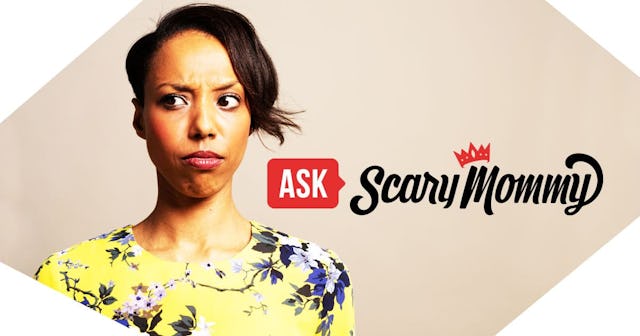Ask Scary Mommy: My Relatives Are Spreading Misinformation About COVID-19

Are you struggling with a friend or family member who is sharing misinformation about coronavirus and its risks? Do you call them out on their nonsense or let it go?
Have your own questions? Email advice@scarymommy.com
Dear Scary Mommy,
My cousin keeps sharing information on social media about COVID-19 as a political hoax. They are generally a kind person, and while I don’t see them that often, we do cross paths at weddings and other family events. Do I call them out on their misinformation? Do I let them continue to live in ignorance? Between homeschooling and financial worries, I’m stressed enough already; I don’t want to add personal conflicts to the list of stressors. But I also don’t want to be complicit in their spreading of misinformation. What do I do?
Oh, friend. I feel you. I totally feel you. The misinformation and conspiracy theories about COVID-19 abound. In fact, almost as dangerous as the coronavirus is the misinformation (and resulting unsafe behaviors) surrounding it.
The first thing to do is to consider your relationship with this person. Are they a friend of a friend that you can simply ignore? Is it an old high school classmate who keeps popping up in your Facebook feed? Is it a close friend or relative who you respect and love? Is it someone who has a (wanted or unwanted) regular presence in your life, such as an in-law or co-worker?
If this person is someone you don’t need to interact with, I’d encourage you to make liberal use of the Unfriend, Unfollow, and Block buttons. You do not need unnecessary stress and stupidity in your life. While we do have a social responsibility to correct misinformation where we see it, that responsibility doesn’t mean we should put our own health and wellbeing at risk. Sometimes cutting people off is necessarily — and can speak volumes.
There is also a bit of a cost-benefit analysis involved, since it is better to spend your time and energy communicating with those who are open to correction and additional information, than those who are determined to keep their heads buried in the sand.
If you want or need to interact with your cousin going forward (and it sounds like you do), then it can be helpful to try to understand – and maybe even empathize with — why they believe what they believe. They may be mistaken or unaware. In fact, evidence shows that most people actually want to share accurate information.
“The research,” MIT professor David Rand, who studies misinformation, told CNN, “suggests that people really do want to share only accurate information. … The people on your family group chain, most social media users want to only be sharing stuff that’s accurate.”
Things can get dicey, though, when emotions are involved. Rand also noted, “when people rely on intuition and emotion, they are more likely to believe false claims. Statements, for example, that are scary make people less inclined to stop and think about it.”
Let’s face it, people are really scared right now. We’re scared for our safety and health, and the safety and health of the ones we love. We’re scared about losing jobs and the financial impact of the pandemic. We’re scared about this new way of living that, quite frankly, we are completely unprepared to handle. We’re scared about the unknown and what lasting changes might be around the corner. So yeah, we’re more susceptible to emotionally-evocative information and misinformation.
If this is the case, it might help to acknowledge that fear upfront. Perhaps you could say something like, “I know we’re all really scared right now about lots of different things, but misinformation only makes those fears worse.” Then follow-up with fact-based information. It’s best to use well-respected, authoritative sources to back up your information. According to CNN, many people seem to trust information from local sources, so you might want to start there.
Most people also respond more favorably to one-on-one communication, rather than public disagreements, especially if they may be perceived as “shaming” (regardless of whether your corrections of their misinformation actually are shaming or not). So if you see them share an inaccurate post on social media, rather than commenting on their post itself, you may want to try a personal, direct message to them addressing their misinformation.
Another approach that can be helpful when communicating with someone who believes misinformation is to take the “questions as responses” approach. Asking things like: Why do you believe this? Why do you think the health experts are incorrect? What information do you have to support your beliefs? What scares you most about the alternate viewpoint?
While all of these methods of communication can be helpful (or not), at some point, you may need to accept that they may be unwilling to accept the truth. You are under no obligation to continue to be subjected to their dangerous misinformation (and resulting behaviors). If communicating with them becomes intolerable due to their toxicity, set boundaries on your relationship. You may even need to take a break from them. No, you don’t need to call them a stupid, selfish asshole (though this might be true), but you can and should put up boundaries to protect your health and safety. And sometimes that means removing sources of dangerous misinformation and behavior from your life.
This article was originally published on